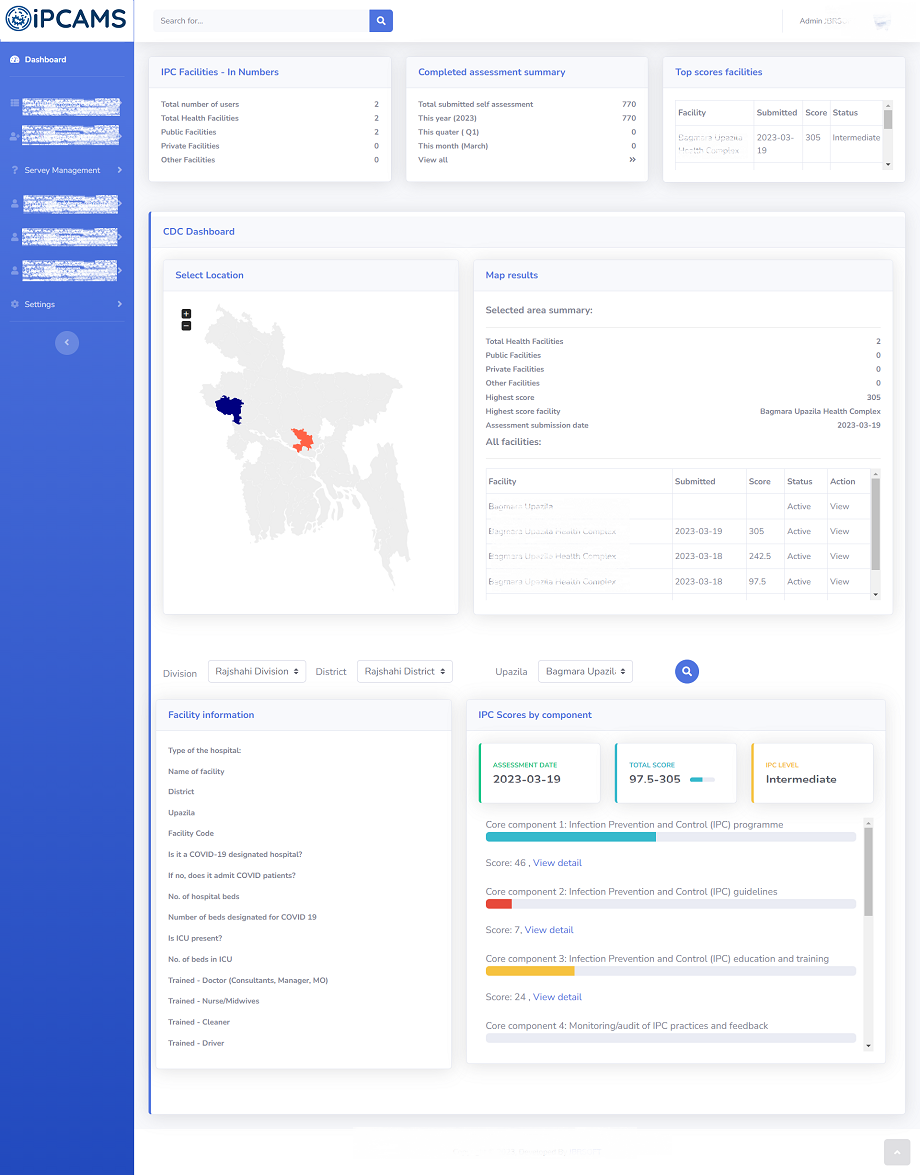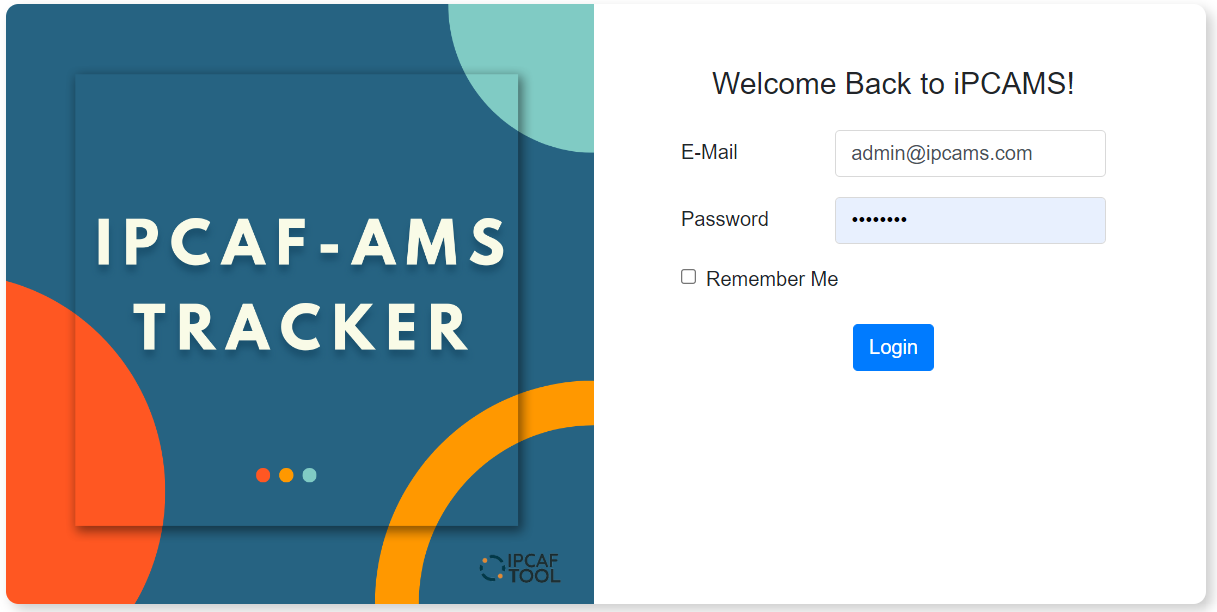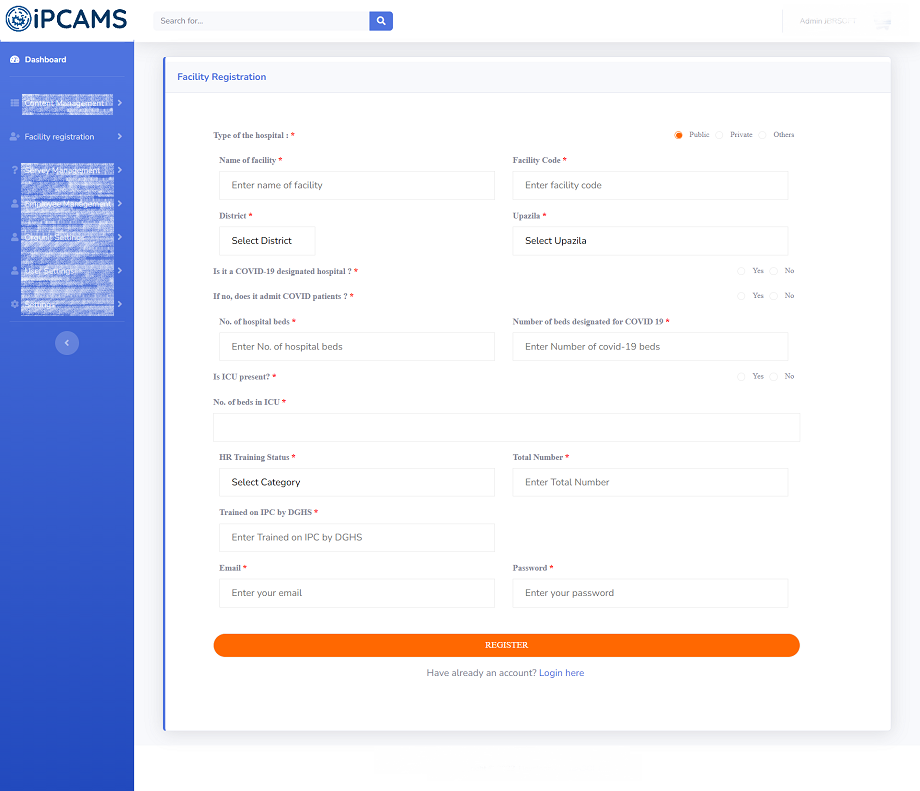WHO IPCAF Tool
Health care-associated infections (HAIs) pose a worldwide burden. HAIs are one of the most common adverse events in care delivery and a major public health problem with an impact on morbidity, mortality, and quality of life. Up to 7% of patients in developed countries and 10% in developing countries will acquire at least one HAI. To prevent HAIs and strengthen infection prevention and control (IPC) structures, the World Health Organization (WHO) has developed a variety of tools and guidelines. In 2018, the WHO released the Infection Prevention and Control Assessment Framework (IPCAF), a tool designed for assessing IPC structures at the facility level.
The IPCAF tool rates hospitals from “inadequate” to “advanced,” and it places them on a continuum of progress. It is a tool for diagnostic purposes to evaluate current IPC initiatives and resources and pinpoint its strengths and weaknesses. It tackles a total of 80 indicators framed as questions and is divided into eight sections reflecting the eight core components. To evaluate the usability, reliability, and construct validity of the Framework, the IPCAF has undergone pilot testing in numerous acute health care institutions around the globe (in both low- and high-resource contexts).
Antimicrobial Stewardship (AMS) Assessment Tool
The antibiotic stewardship program assessment tool is used as a Core Elements of Hospital Antibiotic Stewardship Programs. The Core Elements are designed to be a flexible framework that hospitals can use to direct their efforts to improve antibiotic prescribing. The assessment tool can be used on a periodic basis (e.g., annually) to document current program infrastructure and activities and to help identify items that could improve the effectiveness of the stewardship program. AMS is one of three “pillars” of an integrated approach to health systems strengthening. The other two are infection prevention and control (IPC) and medicine and patient safety.
iPCAMS
The iPCAMS is a web-based and mobile application that enables baseline assessments of infection prevention control and antimicrobial stewardship at hospital facilities to enhance infection prevention. It provides a national and hospital-level dashboard where you can monitor and compare the progress of the IPC and AMS. A CO2 monitoring module has been under development which enables you to inform about the amount of air contamination and send alerts via the dashboard and mobile application.
iPCAMS findings assists the hospital infection prevention committees to develop time bound IPC and AMS action plans along with the person responsible for each action and initiate using continuous quality improvement (CQI) methods for achieving improvements to reduce healthcare associated infection (HAI).
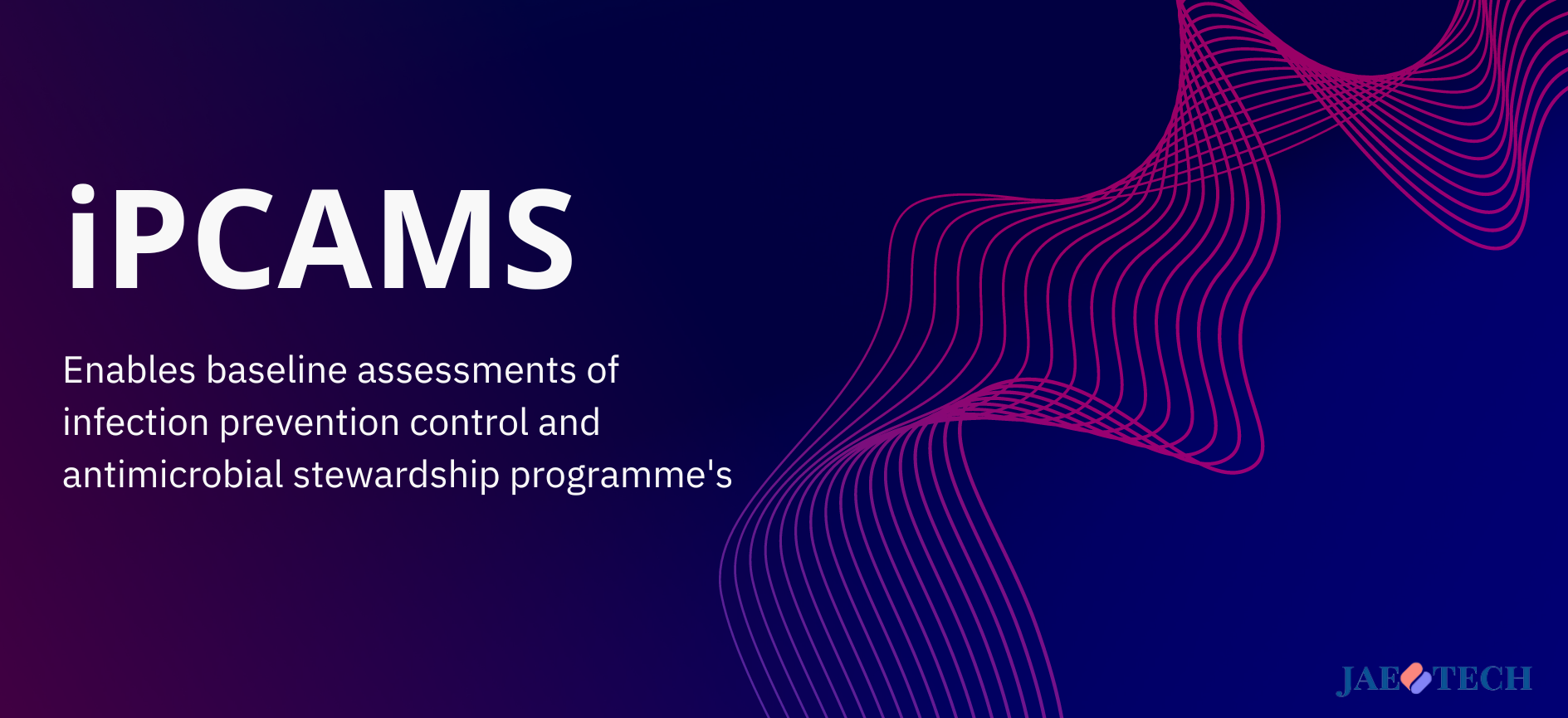
How iPCAMS helps to take decisions?
A Dynamic, User Friendly IPC and AMS Assessment Tool
Things that make iPCAMS a faster, easier, smarter, and integrated platform
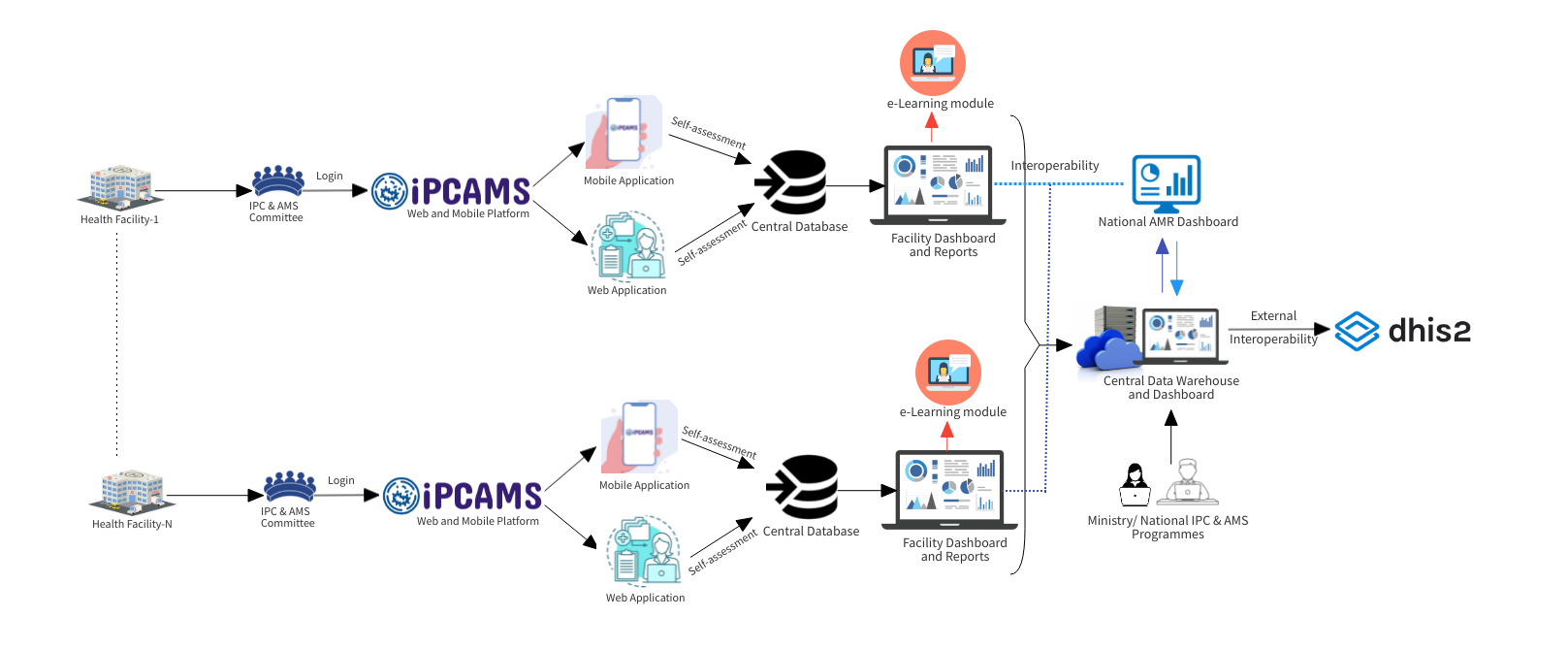
CO2 Monitoring and Data Logger
It enables the calculation of infection probabilities that can be used as ``alarm`` systems to keep infection probabilities below a critical value.
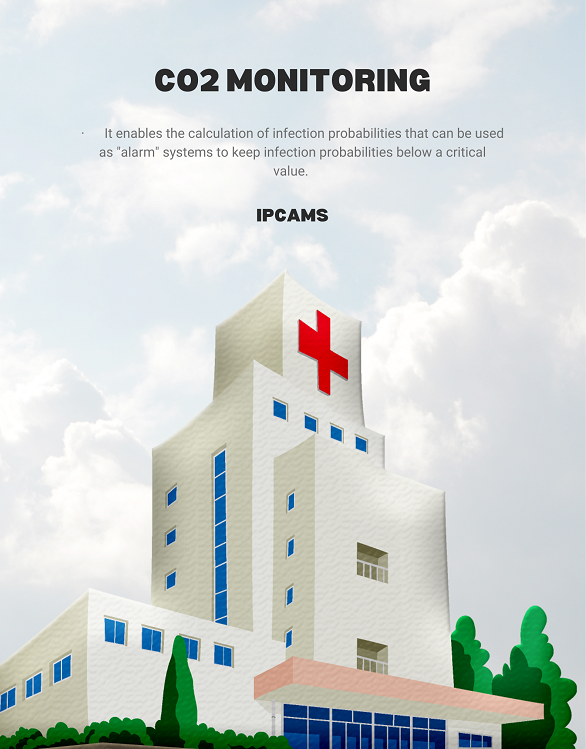
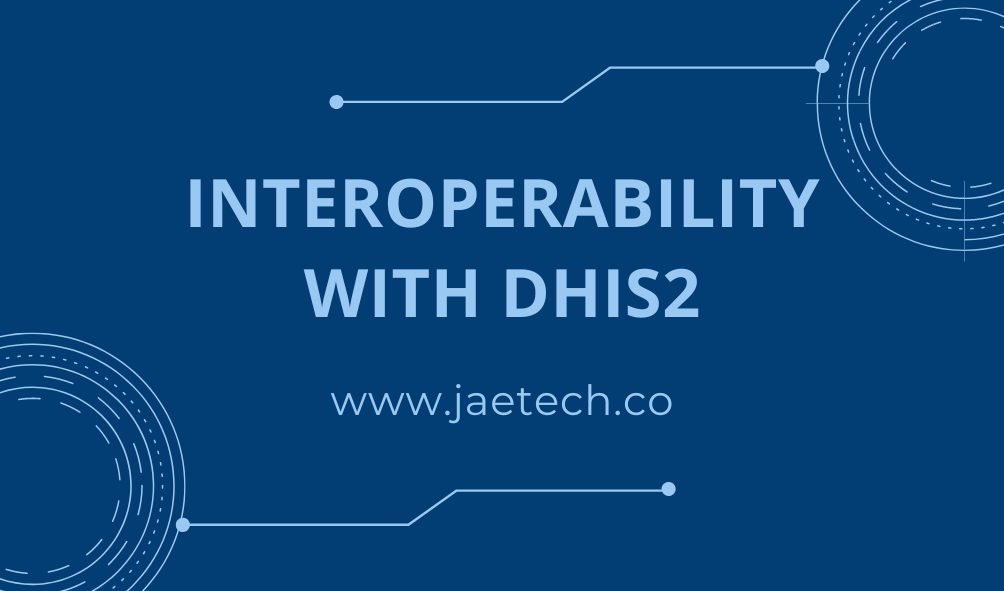
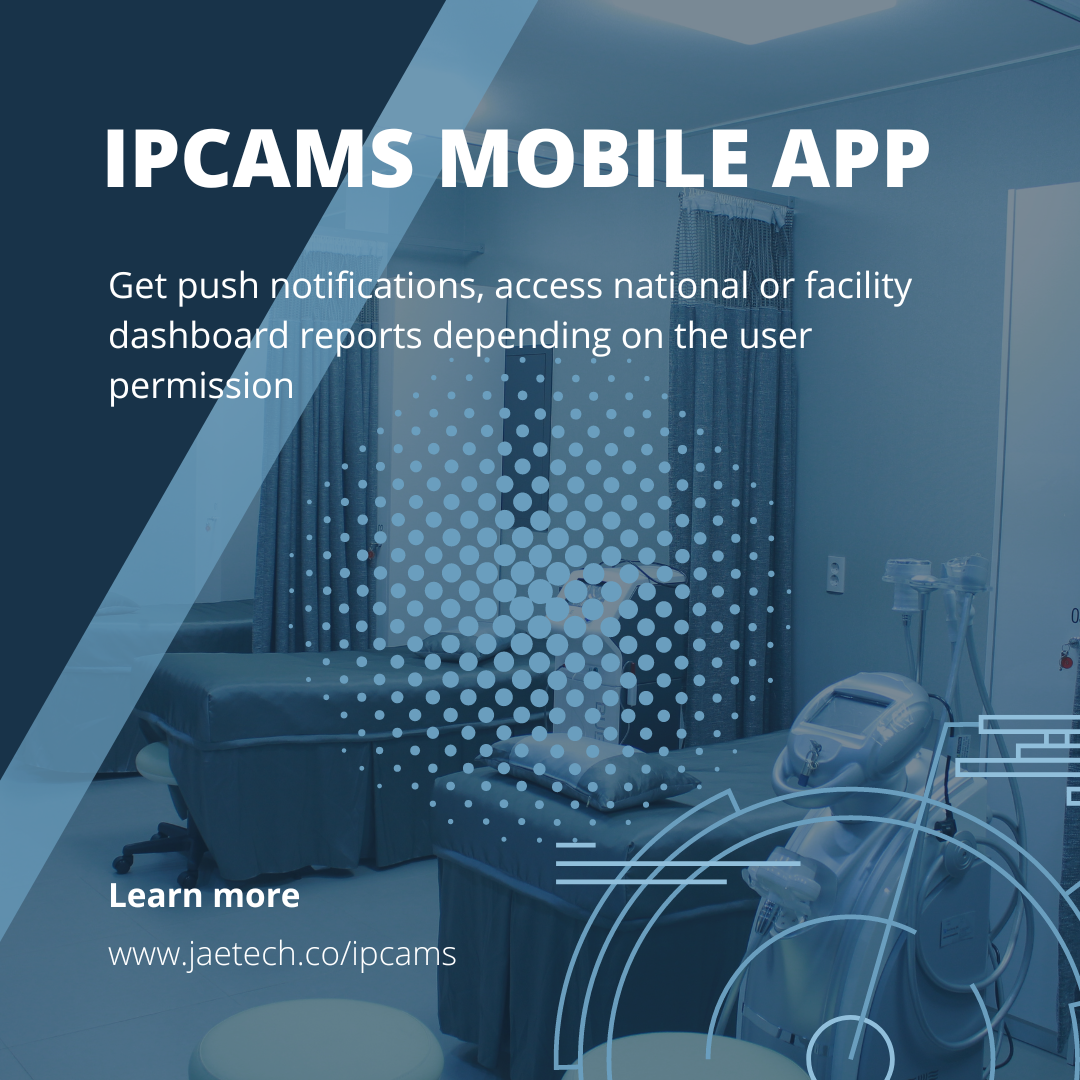

Mobile Application & Push Notification
iPCAMS mobile app helps to get push notifications, access national or facility dashboard reports depending on the user permission, submit recommendations, and conduct self-assessment.
Are you curious?


